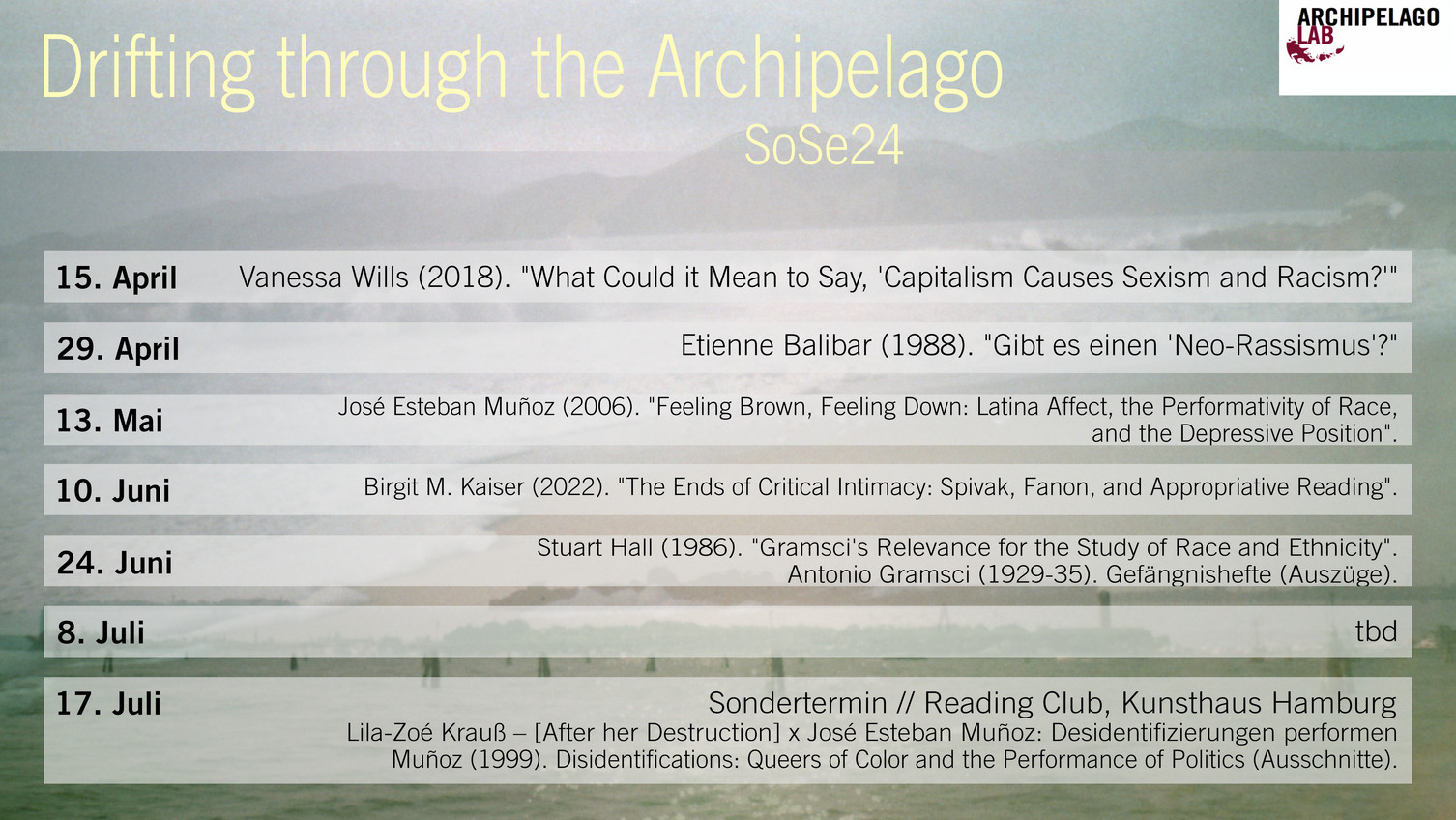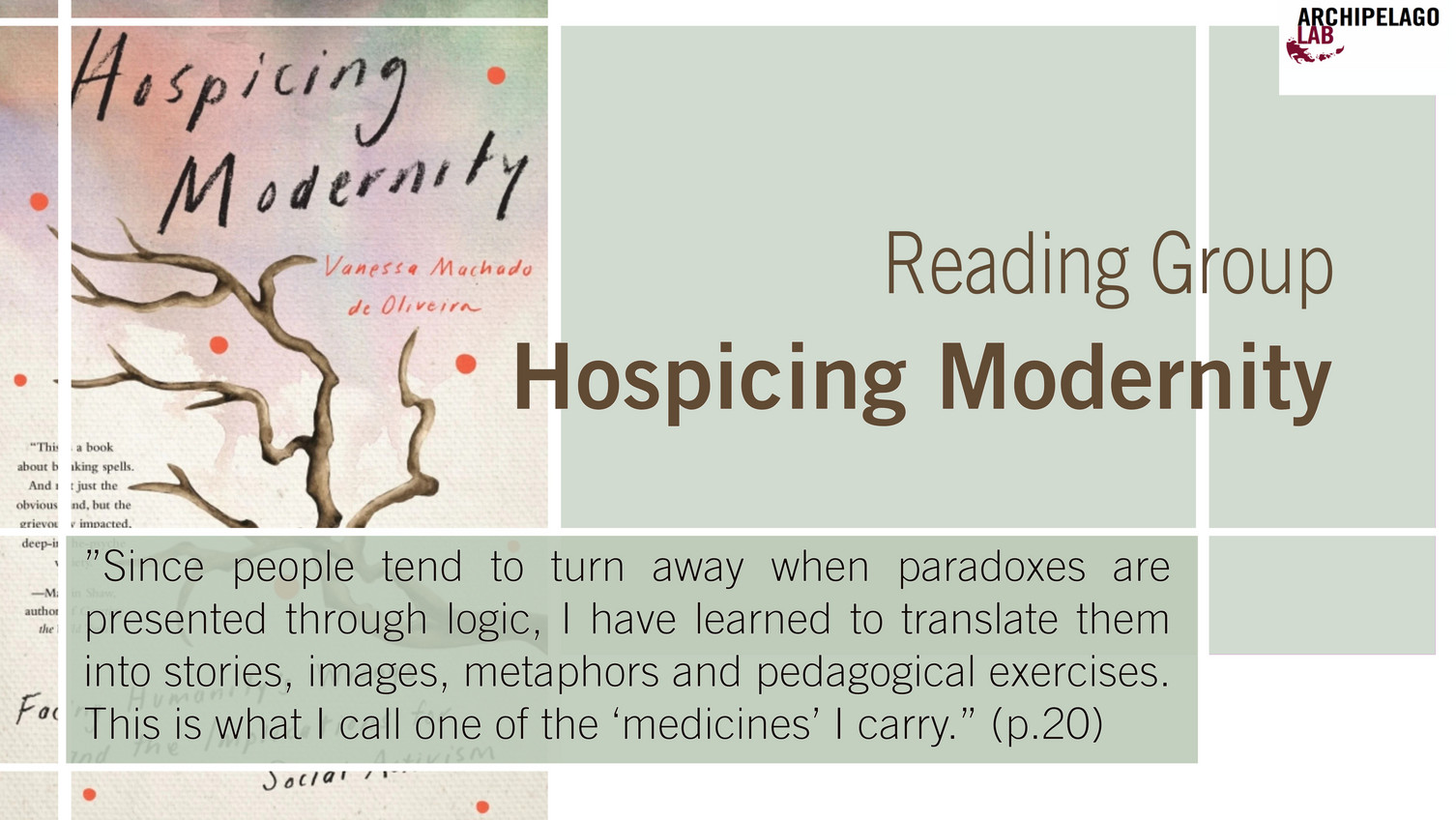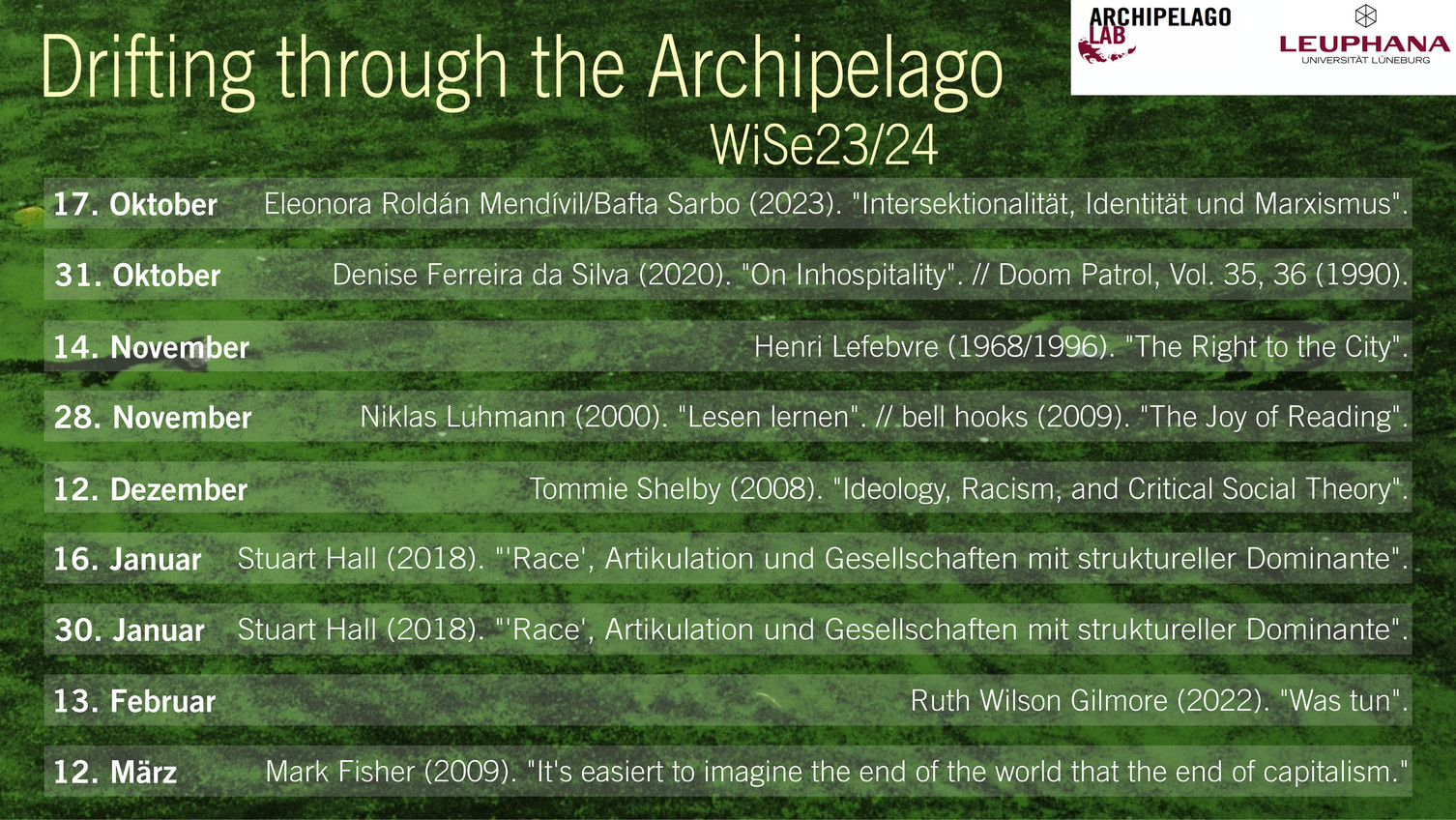SoSe24 - Drifting through the Archipelago
every second monday
8 pm
The group will be held mainly in German, in English per request.
online
In this reading group we read texts that are currently moving the people who are active in and around the Lab, that we want to explore together, and that thus become part of the Archipelago.
Material:
For text and access information, feel free to send a quick email to archipelagolab@leuphana.de.
*This semester, the reading club has a special date at the Kunsthaus Hamburg. In their Reading Club we will visit the exhibition Lila-Zoé Krauß - [After her Destruction] and then read excerpts from José Esteban Muñoz's Disidentifications: Queers of Colour and the Performance of Politics (1999) in a public gathering.
SoSe24 - "Hospicing Modernity - Facing Humanity's Wrongs and the Implications for Social Activism”
Tuesdays
2 - 4pm
ArchipelagoLab (C5.225)
contact: Smilla Grubert
The exchange will take place in German and English.
”Since people tend to turn away when paradoxes are presented through logic, I have learned to translate them into stories, images, metaphors and pedagogical exercises. This is what I call one of the ‘medicines’ I carry.” (p.20)
With these words, Vanessa Oliveira de Machado, who is a specialist in articulating paradoxes at the interface of colonial encounters, describes the nature of her work. In the trans-disciplinary ‘GESTURING TOWARDS DECOLONIAL FUTURES’ collective, she has conducted research with indigenous knowledge keepers, artists, researchers, students and educators and recorded her findings and results in an unsettling gift: her book “Hospicing Modernity - Facing Humanity's Wrongs and the Implications for Social Activism”.
It is precisely this book that the reading circle is dedicated to, which can also transform into a space for collective research, grieving and practice. For right at the beginning, the author advocates that, in view of inhabiting a world that is characterised by multiple crises, it is important to develop the ability of "holding spaces where heavy things can be held and difficult movements can happen without relationships falling apart".
About the book:
Based on the observation that the idealisation of Western forms of good life (notions of progress, development) no longer offer the security and well-being promised that modernity conditions us to want, the author concludes that we are in the midst of a dying process of modernity. The closely interwoven symptoms manifesting the devastating state of planet Earth are increasing in intensity at an alarming rate. We live, grow up and educate ourselves in an accelerated world of unpredictability in which not only technological developments change in extraordinary dimensions, change itself is constantly changing!
So we have to ask ourselves with which theory of change we encounter the systemic crisis?
Usual theories of change assume that if there is a problem with the system out there, we the ‘virtuous, moral or enlightened’, need to solve it by patching it up or by offering a better alternative for replacement. Vanessa Oliveira de Machado's considerations are based on a different theory of change which suggests that we must examine how violence and unsustainability are conditions necessary for the system (that is ‘not working’) to exist, how we are part of this system and complicit in the harm.
Alongside a sophisticated de-colonial analysis of modernity, ‘Hospicing Modernity’ explores our entanglement with the shit that we need to compost together (Haraway), how to face escape mechanisms for problematic realities, denial and our collective oversaturation of unprocessed emotions. Furthermore, it asks to what extent the university as a colonial project enacts ways of being (ontology), ways of knowing (epistemology) and ways of doing (methodology) that are opposed to the well-being of all living beings and how we can also support the dying and metamorphosis process of this institution with integrity as well.
This reading group invites you to sit down together with this book and to collectively learn how to sit with the mess!




